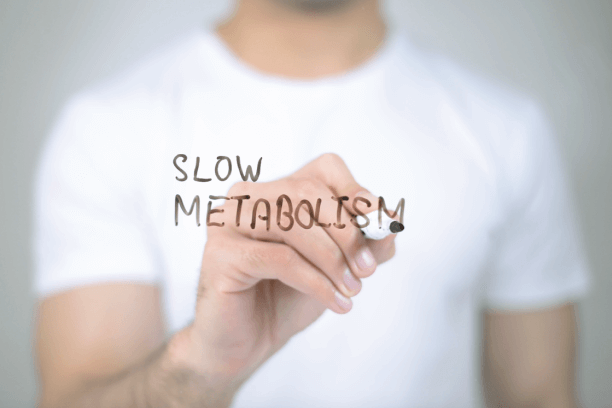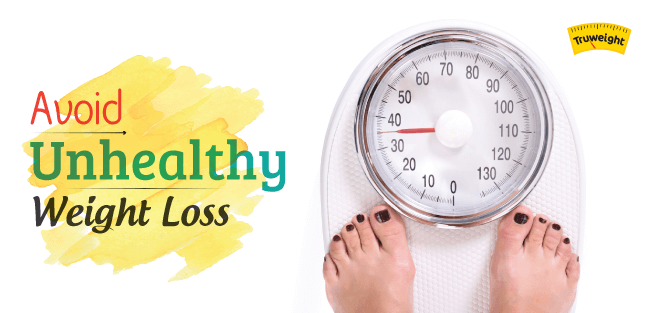Health, Weight Loss
7 Reasons Why You Should Avoid Drastic And Excessive Weight Loss
Losing weight is important but losing weight the right way is more important. Losing weight is not just about being slim but is much more beyond it. It is more about being fit and healthy.
A known fact and many studies have proved that people who lose weight slowly are more likely to keep it off long-term. Losing weight slowly also comes with far fewer health risks.
Table of Contents
- What is Healthy Weight Loss?
- 7 Side Effects of Quick Weight Loss
- Risk of Dehydration
- Slows Down Your Metabolism
- Destroys Body Equilibrium
- Cause Nutritional Deficiencies
- It May Cause Gallstones
- You May Lose Muscle
- Other Side Effects
Losing or gaining only a few kilos throughout the year is normal, but according to many studies, if you lose more than 5 percent of your body weight in less than six months with no change in your diet and without any physical activity, it is time to see a doctor.
Gaining a few kilos during your vacation and losing some after a stomach infection is something normal.
What is Healthy Weight Loss?
It is natural for anyone trying to lose weight to want to lose it very quickly. But evidence shows that people who lose weight gradually and steadily (about 1 to 2 pounds per week) are more successful at keeping weight off.
Healthy weight loss isn’t just about a “diet” or “program”. It is about an ongoing lifestyle that includes long-term changes in daily eating and exercise habits.
Once you have achieved a healthy weight by relying on healthful eating and physical activity most days of the week (about 60—90 minutes, moderate intensity), you are more likely to be successful at keeping the weight off over the long term.
7 Side Effects of Quick Weight Loss
1. Risk of Dehydration
A lot of the lost weight you experience on crash diets is actually the loss of water weight.
You are not only losing the fat that you want to lose, it also means your body is not getting the water that it needs.
Dehydration does not just cause discomfort from fatigue, headaches, and constipation; if prolonged, it can lead to more serious issues, like the formation of kidney stones or even impaired kidney function.
2. Slows Down Your Metabolism
Losing weight too fast may slow down your metabolism.
Your metabolism determines how many calories you burn each day.
A slower metabolism means you burn fewer calories per day.
Several studies have found that losing weight fast by eating fewer calories may cause you to burn up to 23% fewer calories per day.
Two reasons why the metabolism drops on a very low-calorie diet are a loss of muscle and a fall in hormones that regulate your metabolism, such as thyroid hormone.
Unfortunately, this drop in metabolism may last long after you finish dieting.

3. Destroys Body Equilibrium
Our bodies are constantly adjusting for minor changes to keep things running smoothly, but there are instances where change is too rapid and too drastic for the body to respond and regulate. This is particularly true when it comes to our electrolyte balance.
Electrolytes play a major role in keeping us alive since they provide the electrical current that allows our muscles, particularly the heart, to contract at the right speed.
When there is a sudden decrease of food intake, there is also a sudden decrease in the electrolytes that our bodies are used to getting, particularly potassium and magnesium. If the body can’t handle the deficit, this can lead to impaired cardiovascular function and irregularities such as heart arrhythmias.
Just like electrolyte balance needs to be maintained, the amount of sodium in our body also needs to be regulated to keep our blood pressure at just the right spot. Too high and it can increase our risk for heart disease, too low and we can feel faint since oxygen is not getting to our cells quickly enough.
So while there is talk about low-sodium diets, which are necessary for some, having too little sodium isn’t good either. During a crash diet, sodium levels in the body can plummet, which can make you tired, light-headed, and even cause fainting spells.
4. Cause Nutritional Deficiencies
If you are not eating enough calories regularly, you may be at risk of a nutritional deficiency. This is because it’s hard to consume enough important nutrients like iron, folate and vitamin B12 on a low-calorie diet. Below are a few consequences of nutritional deficiencies.
Hair loss:
When you eat too few calories, your body might not get enough nutrients to support hair growth, which may cause hair loss Extreme fatigue: You may not be getting enough iron, vitamin B12 and folate on a very low-calorie diet, which may put you at risk of extreme fatigue and anemia
Poor immune function:
Not getting enough calories and nutrients may weaken your immune system and increase your risk of infections Weak and brittle bones: May be caused by a lack of vitamin D, calcium and phosphorus in the diet.
Fortunately, you can avoid a nutritional deficiency by eating a diet rich in whole, unprocessed foods. These foods contain fewer calories per gram and are also quite filling, which may help you lose weight.
5. It May Cause Gallstones
Gallstones are hardened pieces of material that form inside the gallbladder. They can be a painful side effect of losing weight too fast. Normally, your gallbladder releases digestive juices to break down fatty food so it can be digested. If you’re not eating much food then your gallbladder won’t have to release the digestive juices.
Gallstones can form when substances inside the digestive juices sit for a while and have time to join together.
The gallstones can become stuck inside the opening of the gallbladder and cause a gallstone attack. This may cause severe pain and indigestion.
6. You May Lose Muscle
Losing weight is not always the same as losing fat. While a very low-calorie diet may help you lose weight fast, a lot of the weight you lose may come from muscle and water.
7. Other Side Effects
Losing weight fast on a “crash diet” or very low-calorie diet is linked to several other side effects, including hunger, fatigue, irritability, feeling cold, muscle cramps, dizziness, constipation or diarrhea, dehydration, etc.
Frequently Asked Questions
How much unexplained weight loss is bad?
Ans. Unintentional weight loss of 10 pounds (4.5 kilograms) OR 5% of your normal body weight over 6 to 12 months or less without knowing the reason.
What diseases cause rapid and unexplained weight loss?
Ans. Addison’s disease (adrenal insufficiency), cancer, Celiac disease, changes in diet or appetite, changes in sense of smell, changes in sense of taste, COPD (Chronic Obstructive Pulmonary Disease), Crohn’s disease, etc.
What are the risks of losing weight too fast?
Ans. Losing weight too fast may increase your risk of muscle loss, decreased metabolism, nutrient deficiencies, gallstones amongst other risks.
Join the Possible community for a healthy journey toward a healthier you! Talk to our expert Possible Nutritionist today. The first consultation is on us. Click here to avail.

Hi, and thank you for the tips, they were really helpful. My name is Theo and I don’t want to take up much of your time it’s just that you seem to know much more about the bod
y and losing weight than I do.
I’ve been trying to lose weight for some time now without much success and don’t know if I just don’t know what to use or do, or if I just don’t know how to lose weight but I do know that I’m tired of wasting money so I’m hoping you can and will help me.
could you tell me about some other resources.
Thank you
Theo
Hi Theo! We are glad to know that you liked the tips provided in this article. As you wanted to lose, our program helps you in losing weight naturally. Kindly call us at toll free number 18001021255 to speak to the concerned team. https://get.truweight.in/indian-weightloss-diet-ebook-download/
Hi Love that you’re doing!
Hi Adam! Thank you and Keep following our blog to know more health information.
Thank you so much for sharing. this blog is very useful for all those who want to reduce their weight..
Thank you for sharing so much information on weight loss.
Hi Ramith! You are welcome. Keep following our blog to know more health information.
Hi everyone I hope all is well with everybody This is a really good blog Thank you for sharing it with all of us Let me first by saying you got a lot of good information here And it will help a lot
Hi Michel! We appreciate you for taking your valuable time to share us the feedback on our article. It clearly explains why you should avoid drastic weight-loss. Keep following our blog to know more health information.
I am finding it tougher to lose weight as I age…nevermind these symptoms. I am not sure what to do. It’s very frustrating.
Hi Linda! We would like to inform you that our program will help you in weight-loss in a natural way. Use the link to downlad the boo and follow the same to lose weight.Keep following our blog to know more health information.
https://get.truweight.in/indian-weightloss-diet-ebook-download/